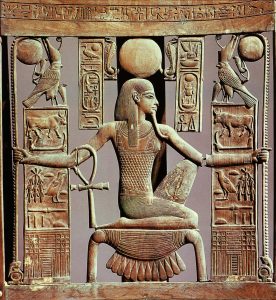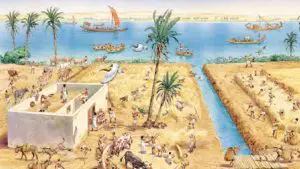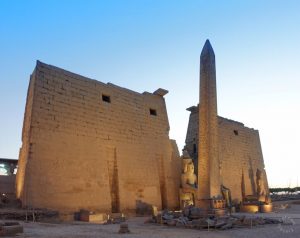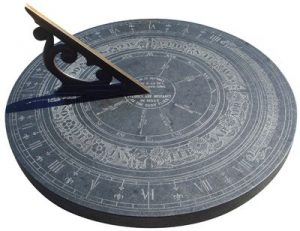Egyptian Civilization was one of the grandest civilizations of the ancient world. This civilization has been an immense interest in research since its rediscovery.
Among the many areas where this civilization shows remarkable advancement, the discipline of science is one of them. Let us try to understand how the concept of time was developed in ancient Egypt and how it laid the foundation of the modern day calendar system.
The emergence of the Concept of Time
The recognition of seasons & the cycle of birth, life, death & re-birth were the first elements used by ancient Egyptians to identify time. They developed their concept of time in such a way that it could serve the purposes of farming & the ritualizations of certain social celebrations & support the fundamental beliefs of their culture simultaneously.
God of Time
According to the mythology of ancient Egypt, Heh/Huh is believed to be the god of eternity & time. This human/fog-headed god was believed to be one of the eight deities of Hermopolis. He is represented as holding one/two palm fronds of ‘a million years’ in his hands.

The Nile & its Inundation
The Nile river is considered as the heart of ancient Egyptian civilization. Even in the present day, Nile is regarded as the most important water resource of modern Egypt. Ancient Egyptians not only used the inundation of the Nile as a great catalyst to agricultural growth but also a method for the measurement of time.

They divided the year into three divisions: ‘Akhet”, referring to inundation; ‘Peret’, referring to the emergence or growing & ‘Shemw’, referring to harvest. Each season was further divided into four thirty-days months. The concept behind this calendar system, developed by ancient Egyptian is even used today.
Obelisks & Shadow Clock
A day was divided by ancient Egyptians into sections to come to know what the time it was. It was true that every obelisk in Egypt had their own story, but they were also used as shadow clock to measure the time of a day. Later, they invented for the first time a portable timepiece: shadow clock. This light weighed device gave the nearly exact time in a day.


Importance of the Concept of Time
To ancient Egyptians, time served specific & subjective social functions. That was the reason for what they did not count time in annual units. They preferred to mark time according to significant social events; thus practically started & stopped years when it was convenient for them.
According to historians, in ancient Egyptian society, time was adapted in such a way that it can support its social values & norms.
The invention of Modern Year System
In modern time, the 365-days’ one-ear calender in a globally recognized year counting system. The interesting fact is that this system was long before invented by ancient Egyptians. Later, it was corrected by Greek & Middle Age astronomers.
The idea of 24-hours Time Cycle
The ancient Egyptians actually gave great efforts to shape the concept of time in such a way that it remains convenient to us even in the present day. These ancient people were those who divided first the time between the sunrise & sunset into 12 hours & the night into another 12 hours. They extensively used the changing positions of the stars to tell what the hour was at any given moment.
Death & Time
To ancient Egyptians, death was not simply the end of life but the doorway to go to another time or another life. The archaeological evidence is enough to understand this belief of them. It can be noticed in their custom of burying the dead ones with their goods that they would need to carry into the next lifetime.
Time Consciousness of Ancient Egyptians
Ancient Egyptians were time conscious people. It can be noticed through the performance of daily rituals in the temples. The physical structures of ancient Egyptians such as pyramids, temples etc. were constructed in such a manner that can be coped up with the centrality of a time-consciousness in their culture.
Thus, the most significant contribution of ancient Egyptians was the conceptualization of time that remains as a central element to our own culture.